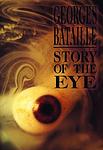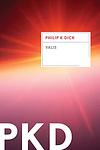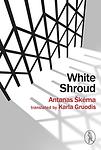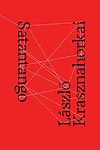The Greatest "Experimental, Fiction, Existentialist" Books Since 1950
Click to learn how this list is calculated.
This list represents a comprehensive and trusted collection of the greatest books. Developed through a specialized algorithm, it brings together 300 'best of' book lists to form a definitive guide to the world's most acclaimed books. For those interested in how these books are chosen, additional details can be found on the rankings page.
Genres
The "Experimental" category of books is characterized by works that challenge traditional literary conventions and push the boundaries of form and content. These books often incorporate unconventional narrative structures, language, and themes, and may experiment with different mediums such as poetry, visual art, or multimedia. The goal of experimental literature is to create new and innovative ways of storytelling that challenge readers' expectations and expand the possibilities of what literature can be.
Existentialist literature is a genre that explores the meaning and purpose of human existence, often through the lens of individual experience and subjective perception. These books often delve into themes of freedom, choice, and responsibility, and may challenge traditional notions of morality and societal norms. Existentialist literature can be introspective and philosophical, and may offer readers a unique perspective on the human condition and the search for meaning in a complex and often chaotic world.
Countries
Date Range
Reading Statistics
Click the button below to see how many of these books you've read!
Download
If you're interested in downloading this list as a CSV file for use in a spreadsheet application, you can easily do so by clicking the button below. Please note that to ensure a manageable file size and faster download, the CSV will include details for only the first 500 books.
Download-
1. Waiting for Godot by Samuel Beckett
"Waiting for Godot" is a play that explores themes of existentialism, despair, and the human condition through the story of two characters, Vladimir and Estragon, who wait endlessly for a man named Godot, who never arrives. While they wait, they engage in a variety of discussions and encounter three other characters. The play is characterized by its minimalistic setting and lack of a traditional plot, leaving much to interpretation.
-
2. Franz Kafka: The Complete Stories by Franz Kafka
This collection of stories offers a comprehensive look at the work of a renowned author, known for his surreal and often unsettling depictions of modern life. The stories explore themes of existential anxiety, guilt, and absurdity, often through narratives in which ordinary people face extraordinary, inexplicable circumstances. The collection showcases the author's unique style and his profound influence on 20th-century literature.
-
3. Molloy by Samuel Beckett
"Molloy" is a complex and enigmatic novel that follows the journey of its eponymous character, an elderly, disabled vagabond, who is tasked with finding and killing a certain person. The narrative is split into two parts: the first is told from Molloy's perspective as he navigates his way through a strange and often hostile world, while the second follows a detective named Moran who is assigned to find Molloy. The novel is renowned for its challenging narrative structure, its bleak and absurdist humor, and its profound exploration of themes such as identity, existence, and the human condition.
-
4. Infinite Jest by David Foster Wallace
This novel is a complex, multi-layered narrative that explores themes of addiction, recovery, and the human condition in a near-future society. The story is set in a tennis academy and a halfway house for recovering addicts, and it intertwines the lives of its numerous characters, including a gifted but troubled teenage tennis prodigy, his filmmaker father, and a group of Quebecois separatists. The book is known for its length, intricate plot, and extensive use of footnotes.
-
5. The Unnamable by Samuel Beckett
"The Unnamable" is a complex, stream-of-consciousness narrative that explores themes of existence, identity, and the nature of reality. The protagonist, who lacks a clear identity, is trapped in a void and continually questions his existence and reality. As he grapples with his own consciousness, he attempts to tell his story, but constantly doubts and revises it, creating a cyclical, fragmented narrative. The novel is known for its challenging, abstract prose and its exploration of existentialist themes.
-
6. The Book of Disquiet by Fernando Pessoa
"The Book of Disquiet" is a posthumously published collection of thoughts and musings of a solitary dreamer, who is a Lisbon-based bookkeeper. The book delves into the mind of a man who is discontented with his mundane life and finds solace in dreaming and writing. The narrative is a profound reflection on life, solitude, and the nature of humanity, filled with philosophical insights and poetic language. The protagonist's introspective journey and his struggles with existential despair make it a seminal work in the genre of literary modernism.
-
7. Hopscotch by Julio Cortázar
This avant-garde novel invites readers into a non-linear narrative that can be read in two different orders, following the life of Horacio Oliveira, an Argentine intellectual living in Paris with his lover, La Maga. The story explores philosophical and metaphysical themes, delving into the nature of reality and the human condition, while also examining the struggles of intellectual and emotional life. The second part of the novel takes place in Buenos Aires, where Horacio returns after La Maga disappears, and where he grapples with his past, his identity, and his place in the world.
-
8. I'm Not Stiller by Max Frisch
The book is a profound exploration of identity and the human condition, revolving around a man who is arrested upon his return to his home country, Switzerland, after spending time in America. Although he insists he is not the man, Stiller, that everyone believes him to be, his protests are ignored. The story unfolds as he writes in his prison cell, reflecting on his past life and relationships, and grappling with the question of who he truly is. It's a thought-provoking narrative that challenges conventional notions of selfhood and personal identity.
-
9. Correction by Thomas Bernhard
"Correction" is a complex narrative revolving around the life of a man named Roithamer, a genius obsessed with constructing an architectural masterpiece, the Cone, in the center of the Kobernausser forest. The story is told through the perspective of his friend who is reading Roithamer's notes after his suicide. The novel explores themes of obsession, isolation, and the pursuit of perfection, while also delving into the protagonist's troubled relationships with his family and society.
-
10. The Passion According to G.H. by Clarice Lispector
"The Passion According to G.H." is a philosophical novel that delves into the existential crisis of a wealthy Brazilian woman who, after killing a cockroach in her maid's room, experiences a profound metaphysical crisis. The narrative unfolds as a stream of consciousness that explores themes of identity, existence, and the nature of reality. The protagonist's journey forces her to confront her own humanity, the concept of nothingness, and the chaotic, interconnected nature of life. It's a profound and introspective exploration of the human condition and the meaning of existence.
-
11. Endgame by Samuel Beckett
Endgame is a one-act play that follows the lives of Hamm, a blind and unable to stand man, and Clov, his servant who cannot sit. They live in a single room, with Hamm's legless parents residing in dustbins. The characters are trapped in a cyclical existence where they constantly argue and contemplate life, death, and their own existence. The play is characterized by its minimalistic setting and bleak outlook on life, reflecting themes of existentialism and the human condition.
-
12. Watt by Samuel Beckett
The novel is a darkly comedic and absurdist exploration of the human condition. It follows the eponymous character, Watt, as he serves as a domestic servant in a bizarre, isolated household. Throughout the narrative, Watt struggles to make sense of his surroundings, the odd behavior of his master, and his own existence. The book is filled with philosophical musings, wordplay, and surreal humor, offering a unique and challenging reading experience.
-
13. The Ravishing of Lol Stein by Marguerite Duras
The Ravishing of Lol Stein is a novel that explores the life of the eponymous character, who is traumatized by her fiancé's betrayal at a ball. This event leads her into a mental breakdown, after which she returns to her hometown and marries an older man. However, her life takes a turn when she becomes obsessed with a young couple, leading her to question her own sanity and reality. The book delves into themes of love, obsession, and the thin line between sanity and madness.
-
14. Concrete by Thomas Bernhard
The book is a darkly introspective narrative that delves into the mind of a reclusive, obsessive intellectual who is struggling to complete his scholarly work on the composer Mendelssohn. As he grapples with his own ailments and the perceived mediocrity of his surroundings, the protagonist's stream-of-consciousness monologue reveals his deep-seated anxieties, self-loathing, and profound isolation. The narrative is a relentless examination of the protagonist's psyche, showcasing his critical view of society and his own personal relationships, which are fraught with tension and dysfunction. Through this, the novel explores themes of artistic creation, intellectual elitism, and the suffocating nature of expectations and familial obligations.
-
15. Krapp's Last Tape by Samuel Beckett
"Krapp's Last Tape" is a one-act play about an aging man who annually records a review of the past year of his life. On his 69th birthday, he listens to a tape from 30 years earlier, where he reflects on his life at 39, his lost love, and his isolation. The play explores themes of memory, regret, and the passing of time, with the protagonist's relationship with his younger self revealing a portrait of a man in decline.
-
16. The Box Man by Kobo Abé
"The Box Man" is a surreal narrative about a man who chooses to live as a homeless individual, inside a box, in Tokyo. The protagonist, a former doctor, narrates his experiences and observations from within the box, and the narrative often blurs the line between reality and hallucination. The book is a philosophical exploration of identity, anonymity, and the nature of existence, challenging the reader's perception of what it means to be an individual in society.
-
17. Blue of Noon by Georges Bataille
"Blue of Noon" is a provocative novel set in 1930s Europe during the rise of fascism. The story follows the life of an Englishman living in Paris, who is embroiled in a self-destructive cycle of sexual escapades and political extremism. His journey takes him through various European cities, where he engages in debauchery and encounters the political turmoil of the time. The book explores themes of existentialism, nihilism, and the human condition, offering a dark and complex portrayal of a man's struggle with his inner demons and the chaotic world around him.
-
18. The Clay Machine-gun by Victor Pelevin
"The Clay Machine-gun" is a surreal and complex novel that explores the nature of reality and illusion. The story is set in post-Soviet Russia and follows a protagonist who has multiple identities, including a poet in 19th-century Russia, a 20th-century psychiatric patient, and a 21st-century advertising executive. The narrative moves between these identities and realities, blurring the lines between them and creating a layered and philosophical exploration of Russian society, identity, and the human psyche.
-
19. VALIS by Philip K. Dick
The novel follows a mentally unstable man who begins to experience visions after being hit by a mysterious pink light. Convinced the light is a divine entity named VALIS, he and his friends embark on a quest to understand and communicate with it. As they delve into philosophy, religion, and science, the boundaries between reality and delusion begin to blur, leaving both the characters and the reader questioning the nature of existence.
-
20. Rituals by Cees Nooteboom
"Rituals" is a philosophical novel that explores the lives of three men, each dealing with existential crises in post-World War II Netherlands. The narrative delves into their individual searches for meaning and purpose, their struggles with societal norms, and their attempts to establish personal rituals as a way to create order in a seemingly chaotic world. The book is a profound meditation on the human condition, examining themes of time, death, and the nature of reality.
-
21. Epepe by Ferenc Karinthy
The book revolves around a linguist who finds himself inexplicably trapped in a nightmarish city where he cannot understand the language or communicate with the inhabitants. Despite his expertise in languages, the protagonist's skills are rendered useless in this alien environment, leading to a series of Kafkaesque encounters as he desperately tries to make sense of his surroundings and find a way back home. His isolation is compounded by the city's indifferent bureaucracy and the strange, often absurd, customs of its citizens, turning his ordeal into an existential struggle for identity and understanding in the face of an incomprehensible world.
-
22. The Atrocity Exhibition by J. G. Ballard
This book is a collection of interconnected stories that explore the effects of media and technology on modern psychology and human behavior. The narrative centers around a psychiatrist who, after a mental breakdown, becomes fixated on the idea that there is a deeper, more abstract reality beneath the surface of everyday life. He obsessively analyzes cultural events, car crashes, and sexual encounters as he attempts to deconstruct the world into a series of conceptual, almost fetishized images. The work challenges the boundaries between sanity and madness, reality and simulation, in a fragmented, non-linear style that mirrors the disjointed nature of the protagonist's psyche and the chaotic society he is attempting to dissect.
-
23. White Shroud by Antanas Škėma
"White Shroud" is a captivating and introspective novel that delves into the complex and fragmented mind of a Lithuanian immigrant living in Chicago during the 1950s. Through a series of disjointed narratives and poetic prose, the book explores themes of identity, cultural displacement, and the search for meaning in a foreign land. The protagonist's struggle to reconcile his past and present, along with his encounters with various characters, provides a thought-provoking exploration of the human condition and the universal quest for belonging.
-
24. The Face Of Another by Kobo Abe
This novel explores the profound psychological journey of a man disfigured in an accident, who becomes obsessed with creating a mask so perfect it allows him to reintegrate into society unnoticed. Through his meticulous crafting, he not only seeks physical camouflage but also grapples with the deeper existential questions of identity and alienation. As he dons his new face, the boundaries between his true self and the persona he projects begin to blur, leading him into a complex web of deception, introspection, and ultimately, a confrontation with the essence of who he really is. The narrative delves into themes of visibility, the nature of selfhood, and the masks people wear, both literal and metaphorical, to navigate the social world.
-
25. Satantango by László Krasznahorkai
"Satantango" is a bleak and atmospheric novel set in a small Hungarian village, where a group of desperate and disillusioned characters become entangled in a web of deception, corruption, and despair. As they navigate through the decaying landscape and their own inner demons, the novel explores themes of power, greed, and the human capacity for both cruelty and redemption. With its rich prose and intricate storytelling, "Satantango" offers a haunting and thought-provoking reflection on the human condition.
Reading Statistics
Click the button below to see how many of these books you've read!
Download
If you're interested in downloading this list as a CSV file for use in a spreadsheet application, you can easily do so by clicking the button below. Please note that to ensure a manageable file size and faster download, the CSV will include details for only the first 500 books.
Download























